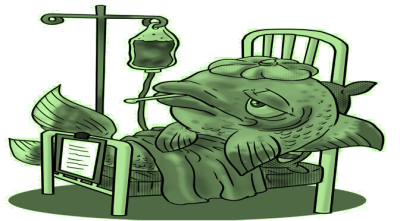
The National Pollution Discharge Elimination System (NPDES) permit program was introduced in 1972 to help control pollution by reducing illicit discharges into the water system.
An illicit discharge is any discharge into the stormwater system that is not composed entirely of stormwater. These discharges allow contaminates to go directly into the stormwater system, and ultimately the local rivers and lakes around our City. Illicit discharges can include businesses that allow floor drains to run directly into the stormwater system, failing septic systems, soapy water from laundry and automobile washing, and illegal dumping of waste into lakes, rivers, ditches, yards, and storm drainage inlets.
As part of the NPDES permit program, the City of Holly Hill seeks to educate its citizens about the hazards associated with illegal dumping. Not only is dumping of wastes illegal and unsightly, it is also extremely unsanitary and can even be toxic. Wastes such as used oils, batteries and paints can seep into the water system and adversely affect the not only the area around these dumps, but also the water, plants and animal further downstream. Dump sites attract insects and rodents which create an unhealthy and unsafe environment.
Rather than dumping waste, dispose of it in the proper receptacles. Or if you are unsure of the proper disposal of the waste, contact Waste Management or the Tomoka Landfill to determine the safest and most sanitary way to dispose of the waste.
- Waste Pro: (386) 788-8890
- Tomoka Landfill: (386) 947-2952
For more information on illegal dumping and the associated hazards please read the following article:
- Visit the Volusia County webpage for information on ways you can help through volunteer clean-up opportunities.
- Visit the NPDES website
